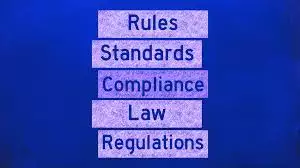Navigating the Legal Landscape: The Crucial Role of Real Estate Agents in Ensuring Legal and Regulatory Compliance
Navigating the Legal Landscape: The Crucial Role of Real Estate Agents in Ensuring Legal and Regulatory Compliance
In the complex world of real estate transactions, legal and regulatory compliance is a cornerstone of success. Navigating the intricate web of laws and regulations requires expertise, and this is where real estate agents play a crucial role. In this article, we will delve into the significant responsibilities that real estate agents shoulder to ensure legal and regulatory compliance, providing a clear understanding of why their role is indispensable in the ever-evolving legal landscape.
Licensing and Qualifications:
Real estate agents are required to obtain the necessary licenses and qualifications to practice in their respective regions. These credentials not only demonstrate their professionalism but also ensure that they have the foundational knowledge needed to navigate legal complexities. Clients can have confidence that their real estate agent is well-versed in the legal intricacies of property transactions.
Transaction Documentation:
One of the primary responsibilities of real estate agents is the preparation and review of transaction documentation. From purchase agreements to disclosure forms, these documents are legally binding and require meticulous attention to detail. Real estate agents serve as intermediaries, guiding clients through the paperwork and ensuring that all legal requirements are met.
Property Disclosures:
In many jurisdictions, sellers are obligated to disclose certain information about the property's condition and history. Real estate agents play a pivotal role in ensuring that sellers provide accurate and comprehensive disclosures. This transparency not only fosters trust between buyers and sellers but also helps avoid potential legal issues down the line.
Market Regulations:
Real estate markets are subject to various regulations that can vary significantly from one location to another. Real estate agents are responsible for staying abreast of these regulations, including zoning laws, land use restrictions, and other pertinent guidelines. By doing so, they can provide clients with valuable insights and help them make informed decisions within the bounds of the law.
Ethical Standards:
Beyond legal requirements, real estate agents are held to high ethical standards by professional organizations and licensing bodies. Adhering to these standards is not only a moral obligation but also a legal one. Real estate agents must conduct themselves with integrity, honesty, and transparency, ensuring that their clients' interests are prioritized and protected.
Risk Mitigation:
Real estate transactions inherently involve risks, and real estate agents act as risk mitigators for their clients. They help identify potential legal pitfalls, such as title issues or property disputes, and work to resolve these issues before they escalate. By proactively addressing legal concerns, real estate agents contribute to the smooth and legally compliant completion of transactions.
Conclusion:
In the intricate dance of real estate transactions, real estate agents are not just facilitators but guardians of legal and regulatory compliance. Their expertise, coupled with a commitment to ethical conduct, ensures that clients can navigate the legal landscape with confidence. Whether buying, selling, or leasing property, enlisting the services of a knowledgeable and reputable real estate agent is a strategic move to safeguard against legal pitfalls and ensure a smooth, legally compliant transaction.


